Heading Example
Programme Description & Aims
The programme provides doctoral students with insights into recent issues in applied linguistics related to TEFL/TESOL and solid knowledge of research methods in the field of social sciences and language pedagogy. Students will be able to synthesize theoretical and empirical studies, design, conduct, and present their own research both orally and in written form. The programme is taught by teaching staff of the Departments of English Language and Literature as well as guest professors from other universities.
Programme length
4 years full time
Programme Content
Psycholinguistics (2 credits: Optional)
This course explores the psychological processes underlying the acquisition, production, and comprehension of language. It also gives students detailed knowledge of basic sub-fields of psycholinguistics, including: the biological bases of language (language & the brain), the lexicon, sentence processing, and discourse processing. Methods used in psycholinguistic research and the interpretation of the types of results these methods uncover are also covered in the course.
A Survey of Language Teaching Methods (2 credits)
This course reviews approaches, methods, and techniques for the teaching of foreign languages in general and English as a second language in particular. The course begins by a review of the theories and basic concepts pertaining to the field of second language acquisition (SLA) and then moves on to introduce factors that influence second language (L2) learning. It continues with the history of language teaching methods so that students can solidify their current beliefs on teaching. It ends with a discussion of the issues and techniques in teaching and assessment of the four macroskills (listening, speaking, reading, writing); attention will also be given to microskills, especially vocabulary and grammar.
Discourse Analysis (2 credits: Optional)
This course takes students well beyond introductory and survey readings to core theoretical and methodological issues of discourse analysis and their influence on language teaching. The course will draw on their previous training in discourse analysis, sociolinguistics, and qualitative research methodologies to raise awareness of the relations between linguistic categories and social life. Moreover, the course will provide students with the opportunity to hone their analytical skills from a number of discourse perspectives by having them work on various genres. This will allow them to learn the strengths and the limits of different ways of analyzing discourses.
Advanced Research
This course is designed to help guide postgraduate students in how to think about and do research in the field of TEFL. Students will learn about how to collect and analyze different types of data. They will become familiar with some of the critiques of various research methods. These critiques may be methodologically based but they may also draw from epistemological questions that surround empirical research. The course will also focus on the theory, logic, and practice of fieldwork, specific methodological and ethical issues associated with studying people and their language learning.
Materials Development
This course is designed for soon-to-be-teachers of foreign and second languages. It gives a survey of syllabus design for such courses and an introduction to materials development. Although the emphasis of the course is practical, the theoretical background of both syllabus design and materials development will also be explored.
Sociolinguistics (2 credits: Optional)
This course explores issues in sociolinguistics, the study of the relationship between language and society. It will look at variation at all levels of language and how such variation constructs and is constructed by identity and culture. An exploration of attitudes and ideologies about these varieties will be of particular importance to understanding this relationship. The course will also consider some of the educational, political, and social repercussions of these sociolinguistic facts. The quantitative and qualitative methods that sociolinguists use to understand the significance of their data and research will also be covered in this course.
Advanced Testing (2 credits)
This course provides the students with an opportunity to review and critically analyze the central concepts in language testing and assessment. It provides them with a working knowledge of the basic principles and procedures for test construction and evaluation, and invites discussion of alternative forms of assessment. It will also include discussions on the general issues about the social and pedagogical context of language testing.
Second language acquisition (2 credits)
This subject introduces the main models of second language acquisition and explores their implications for classroom teaching. First language acquisition is also considered and parallels are drawn between the two processes. The influence of context on second language acquisition is explored, and you are encouraged to reflect on the factors, which may affect the language acquisition of learners in your particular context.
Thesis/Dissertation (18 credits)
The programme ends with students writing up a dissertation to obtain the PhD degree. Students are encouraged to explore an aspect of TEFL which is personally relevant to them and their teaching contexts. Students typically have two years to complete the dissertation and have an individual supervisor to offer advice and support.

